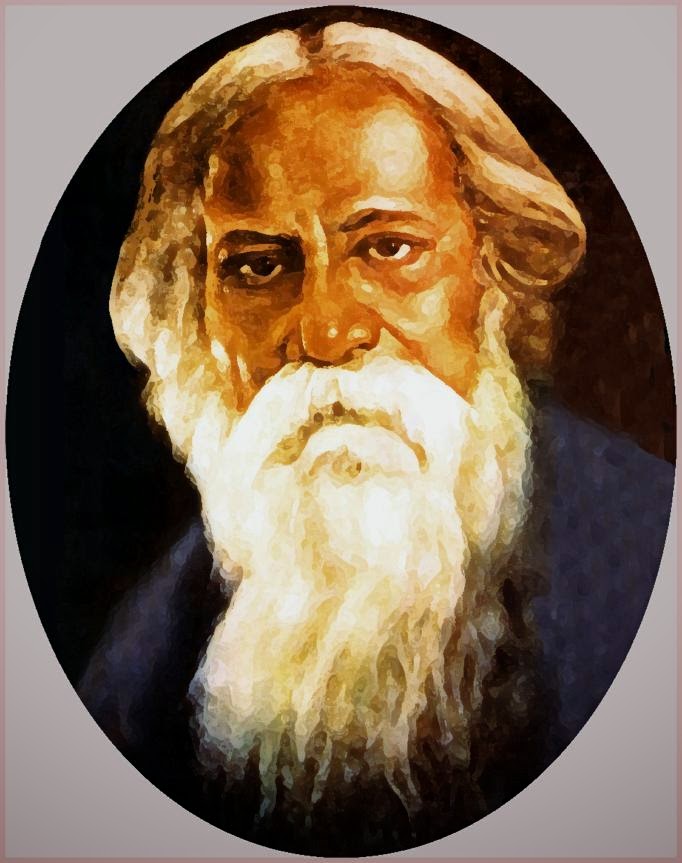PAPER BOATS
Children all over the world are fond of playing with water.
Haven’t you seen children making paper boats and launching them in the rain
water? Have you ever done so?
Go Through Lines....
In big black letters I write my name on them and the name of the village where I live.
I hope that someone in some strange land will find them and know who I am.
I load my little boats with shiuli flowers from our garden, and hope that these blooms of the dawn will be carried safely to land in the night.
I launch my paper boats and look up into the sky and see the little clouds setting their white bulging sails.
I know not what playmate of mine in the sky sends them down the air to race with my boats!
When night comes I bury my face in my arms and dream that my paper boats float on and on under the midnight stars.
The fairies of sleep are sailing in them, and the lading is their baskets full of dreams.
Written By,
Rabindranath Tagore (May 7, 1861-August 7, 1941) was a Bengali poet of India. His name is written as Rabindranath Thakur in Indian languages. He was also a philosopher and an artist. He wrote many stories, novels and dramas, as well as composing music and many songs. His writings greatly influenced Bengali culture during the late 19th century and early 20th century. In 1913, he won the Nobel Prize in Literature, the first Asian to win this prize. He was popularly known as Gurudev. His real name was Robindranath Thakur.
Tagore was born in the city of Kolkata (formerly known as Calcutta), at No. 6 Dwarkanath Tagore Lane, Jorasanko Thakur Bari. Tagore was a Bengali Brahmin by birth. He wrote his first poem when he was only eight years old. He published his first large poetry collection in 1877. He wrote his first short story and dramas when he was only 16 years of age.
Tagore's major works included Gitanjali (Song Offerings), Gora (Fair-Faced), and Ghare-Baire (The Home and the World); and many other literary and art works. He was also a cultural reformer, and modernized Bangla art by rejecting the rigidity of form and style.
Summary of The Poem
Rabindranath Tagore is an outstanding poet of modern India. He was the first to popularise modem India in the world literary scene. Primarily he was a Bengali poet. But he was equally a master at writing in English. He translated many of his works into English. His poetry shows his deep humanism. His is a universal message of peace, love and joy. He transcends the barriers of space and time. So his poetry has a universal appeal.
'Paper Boats' is a nice poem of Tagore, taken from his collection, "The Crescent Moon." This poem is on a childhood experience. Like Wordsworth and Walter de la Mare, Tagore also found in children a mystic quality. The poem narrates the child's, experience of floating paper boats down the stream. The child imagines that some other child tries to compete with his boats by sending clouds down the air in the sky.
The poem shows the child's peculiar psychology.
The child loves the worlds of playfulness and fun. Day by day he floats paper boats down the running stream. He sends them with the intention that they would reach some distant lands. Out of curiosity he writes his name and address on those boats. He fondly hopes that somewhere someone will find them and know him:-
“I hope that someone in some strange land will find
Them and know who I am."
The child has always a deep sense of love. He wishes to present the unknown friend with valuable gifts. So he loads his boats with flowers from his garden. He hopes that the boats will carry the flowers safely to the distant land in the night-
"and hope that these blooms of the dawn
will be carried safely to land in the night."
When the child looks up, he sees the white clouds sailing in the sky-
"See the little clouds setting their white bulging sails."
He imagines that he has a friend in the sky. He thinking that the other child sends white clouds down the air to compete with his boats-
‘I know not what playmate of mine in the sky sends
Them down the air to race with my boats!"
At night he sees dreams in his sleep. He dreams about his paper boats. In the dream he is happy to know that angles are sailing in his boats.
Thus the poem shows Tagore's keen insight into the child's mind.
Similar Poem
A paper boat
Make a few folds and you’re set to float,
Around the world and the seven seas,
Stopping for awhile, rest with the trees.
I don’t need anything more than a paper boat,
To take me places, with a little bit of rope,
As I sail away on a new waking dream,
The world is looking fresh and I’m feeling keen.
Oh to sail away in a paper boat,
I don’t need no land, or a water mote,
Maybe an anchor, and a little food to go,
I’m going to sail away as this river flows.
Making downstream in a paper boat,
Through all the reaches without our coats,
To see the open sea, off to places free,
Somewhere beyond a once lost breeze.
Let’s kiss the wide horizon in a paper boat,
For we’ll not sink, but out there keep afloat,
With paper sails and a long paper deck,
We can brave the storms, and never wreck,
Here’s to a world of love, on one last paper boat…
In a big old world, happy here to keep afloat.
By, SEAN BIDD

